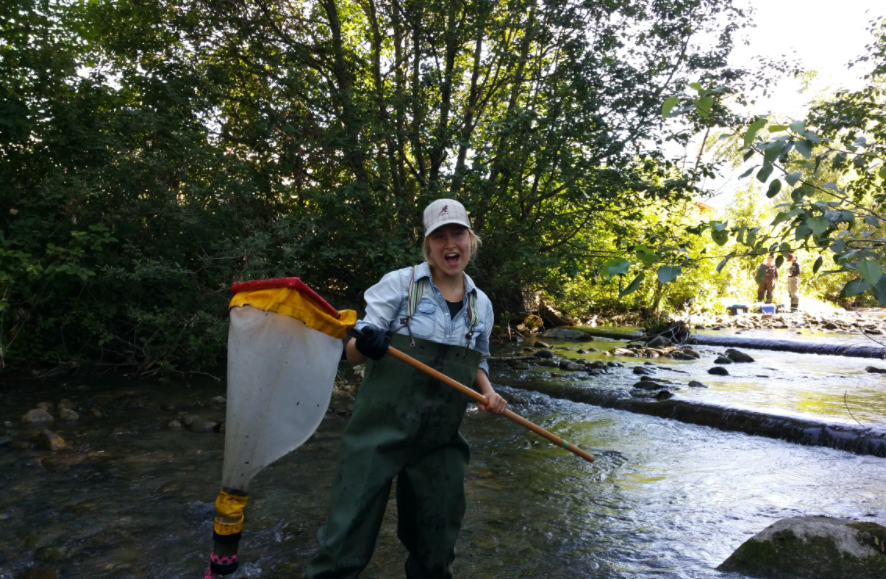Swaying public opinion on the value of beavers in rural Alberta may sound like a tall task, but Cows and Fish—as the Alberta Riparian Habitat Management Society is affectionately known—is up for the challenge with support from the Loblaw Water Fund.
Managed by WWF-Canada, the fund this year will help restore wetland and shoreline habitat for wildlife, install cameras to count migrating Atlantic salmon, improve community-based freshwater monitoring, and even help the beleaguered beaver.
The 2017 Loblaw Water Fund will award almost $255,000 to 11 community projects to improve freshwater health in ecosystems across Canada.
Elizabeth Hendriks, WWF-Canada’s vice-president of freshwater conservation said, “The Loblaw Water Fund puts essential financial support in the hands of community members so they can focus on work that will improve freshwater habitat for fish and wildlife. To determine priority areas for funding, we use the findings of the WWF-Canada Watershed Reports, which assess both the health of Canada’s freshwater ecosystems and stressors like pollution, habitat loss and fragmentation, climate change, invasive species, water overuse and alteration of flows.”
Bob Chant, Loblaw senior vice-president, corporate affairs, said, “The Loblaw Water Fund, and our partnership with WWF, gives us more opportunities to engage Canadians and provide greater support for those working on the ground to conserve our natural environment.”
The 2017 Loblaw Water Fund grant recipient projects:
The Alberta Riparian Habitat Management Society (better known as “Cows and Fish”) will help landowners and local municipalities in the North Saskatchewan River Watershed better understand management options that reduce the impacts of beaver activity while supporting more of the benefits beavers provide. (Project name: Living with Beavers — Implementing Management Changes to Benefit Watershed Health)
The Columbia Basin Watershed Network Society will identify potential wetlands restoration sites and train citizens in wetlands installation. (Project name: Community engagement in wetlands habitat restoration in the Arrow Lakes)
The Skeena Watershed Conservation Coalition, in co-ordination with the Wilp Luutkudziiwus — Luutkudziiwus Territory Management Assessment program, will provide updated information on the effects of forest road and harvesting practices along the Suskwa and Skeena Rivers on water quality, fish stock productivity and habitat of anadromous and resident fish. (Project name: Wilp Luutkudziiwus — Luutkudziiwus Territory Management Assessment)
The Organisme de Bassin Versant Abitibi-Jamésie will conduct preliminary water quality analyses in streams and other surface waters to overcome significant data deficiencies in the Abitibi and Harricanaw sub-watersheds. (Project name: Surface water analyses of the rivers of the Abitibi and Harricanaw sub-watersheds)
Royal Botanical Gardens is working to restore fish and wildlife habitat in Cootes Paradise Marsh and Grindstone Creek Marsh, improve water quality and delist Hamilton Harbour as an area of concern. (Project name: RBG Wetlands Rehabilitation Program)
The Fort Whyte Foundation Inc. is working with partner groups to adopt a standardized protocol for freshwater monitoring in Manitoba, along with a data archive to house gathered information. (Project name: Winnipeg’s Lake Winnipeg — Aquatic Education, Monitoring and Restoration towards Conservation)
The Indian Bay Ecosystem Corporation will install cameras in Indian Bay Brook to count upstream migrating Atlantic salmon to compare with historic data, and will further evaluate the condition of the ecosystem using chemical and biological indicators. (Project name: Indian Bay Watershed Ecosystem Health Assessment: Benthic Biomonitoring, Water Quality & Salmon Stock Analysis)
The Bluenose Coastal Action Foundation will continue to monitor water quality in the LaHave River, assess fish passage at approximately 300 stream crossings, and complete eight fish passage remediation projects. (Project name: LaHave River Watershed Project — Water Quality Monitoring and Aquatic Connectivity Restoration)
To improve understanding of local freshwater health, ACAP Cape Breton will train volunteers from multiple groups in proper sampling protocol, provide them with calibrated equipment, help with sample site selection and data management. (Project name: Neighbourhood Water Watch: Community-based monitoring of freshwater habitat health in Cape Breton)
The Akaitcho First Nations will address concerns about the deteriorating quality and quantity of water downstream of old and active mine sites by carrying out monitoring work on Slave River. (Project name: Regional Akaitcho Water Monitoring Program)
This Yukon River Inter-Tribal Watershed Council project provides training and increases capacity for First Nations’ community-based water quality and quantity monitoring in the Upper Yukon Traditional Territory. (Project name: Indigenous Observation Network: Northern Community-Based Water Quality Project)









